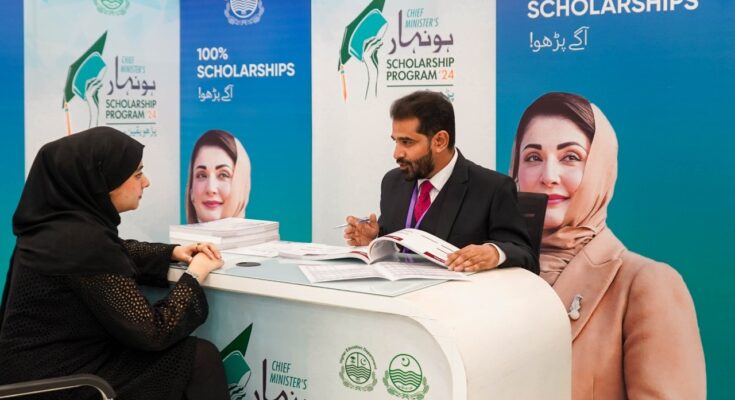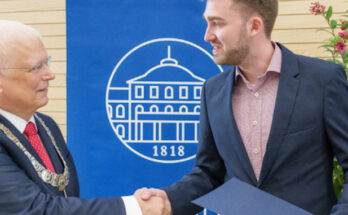Studying abroad is a transformative experience that broadens perspectives, enhances academic credentials, and fosters personal growth. However, the financial burden of international education can be a significant barrier for many students. Fortunately, a wide array of international scholarships exists to support aspiring global scholars. These opportunities, offered by governments, universities, private organizations, and international bodies, make studying abroad accessible to students from diverse backgrounds. This article explores the landscape of international scholarships, their benefits, types, eligibility criteria, application processes, and tips for securing funding to pursue education abroad.
The Value of Studying Abroad
Studying abroad offers more than just academic enrichment. It exposes students to new cultures, languages, and ways of thinking, preparing them for a globalized workforce. According to a 2023 report by the Institute of International Education (IIE), over 1.1 million students studied abroad in 2022, with many citing enhanced career prospects and intercultural competence as key outcomes. Scholarships play a critical role in enabling students to access these opportunities, particularly those who might otherwise be deterred by costs such as tuition, travel, and living expenses.
International scholarships not only alleviate financial stress but also enhance a student’s resume. Being selected for a prestigious scholarship signals academic excellence, leadership potential, and a commitment to global engagement—qualities highly valued by employers and academic institutions. Moreover, scholarships often come with networking opportunities, mentorship programs, and access to exclusive events, further enriching the study abroad experience.
Types of International Scholarships
International scholarships vary in scope, eligibility, and funding levels. Below are the main categories:
1. Government-Funded Scholarships
Many countries offer scholarships to attract international students and foster diplomatic ties. These programs often align with national priorities, such as promoting education in specific fields or strengthening ties with certain regions.
- Fulbright Program (United States): One of the most prestigious scholarship programs, the Fulbright Foreign Student Program supports graduate students, young professionals, and artists from over 160 countries to study in the U.S. It covers tuition, travel, and living expenses, with funding varying by country and program.
- Chevening Scholarships (United Kingdom): Funded by the UK government, Chevening offers fully funded master’s degrees to outstanding leaders from around the world. Scholars are selected based on leadership potential and a commitment to contributing to their home countries.
- Australia Awards: Administered by the Australian government, these scholarships target students from developing countries, particularly in the Indo-Pacific region, to pursue undergraduate or postgraduate studies. They cover tuition, living costs, and health insurance.
- Erasmus+ (European Union): This program supports students within and outside the EU to study at European universities. It provides grants for tuition, travel, and living expenses, with a focus on fostering academic mobility.
2. University-Specific Scholarships
Many universities offer scholarships to attract talented international students. These awards may be merit-based, need-based, or tied to specific academic disciplines.
- Oxford University’s Rhodes Scholarships: One of the oldest and most competitive scholarships, the Rhodes Scholarship funds postgraduate studies at Oxford for students from select countries. It covers tuition, living expenses, and travel, with recipients chosen for academic excellence and leadership.
- Stanford University’s Knight-Hennessy Scholars Program: This program supports graduate students from any country to pursue studies at Stanford. It provides full funding, including tuition and a stipend, and emphasizes leadership development.
- ETH Zurich Excellence Scholarship (Switzerland): Aimed at master’s students, this scholarship covers tuition and living costs for outstanding international applicants to one of Europe’s top technical universities.
3. Organization and Foundation Scholarships
Private organizations, NGOs, and foundations also fund international education, often targeting specific demographics, fields, or causes.
- Rotary Peace Fellowships: These fellowships support master’s degrees in peace and conflict resolution at designated universities worldwide. They are open to candidates with a strong commitment to peacebuilding and cover all study-related expenses.
- Gates Cambridge Scholarships: Funded by the Bill and Melinda Gates Foundation, this program supports postgraduate studies at the University of Cambridge for students from outside the UK. It prioritizes academic excellence and a commitment to improving lives.
- Aga Khan Foundation International Scholarship Programme: This program provides scholarships for postgraduate studies to students from developing countries, with a focus on those who lack other means of funding. It operates on a 50% grant, 50% loan basis.
4. Subject-Specific and Diversity Scholarships
Some scholarships target students in specific fields or underrepresented groups, such as women, minorities, or students with disabilities.
- DAAD Scholarships (Germany): The German Academic Exchange Service offers funding for international students in fields like engineering, science, and humanities. Programs range from short-term research grants to full-degree scholarships.
- Mastercard Foundation Scholars Program: This initiative supports African students to study at partner universities worldwide, with a focus on leadership and community development. It covers tuition, travel, and living expenses.
- Women in STEM Scholarships: Organizations like the L’Oréal-UNESCO For Women in Science program and Google’s Women Techmakers Scholars Program provide funding for women pursuing degrees in science, technology, engineering, and mathematics.
Eligibility Criteria
Eligibility for international scholarships varies widely but typically includes the following:
- Academic Excellence: Most scholarships require a strong academic record, often demonstrated through transcripts, standardized test scores (e.g., GRE, TOEFL), or a minimum GPA.
- Language Proficiency: Proficiency in the language of instruction (e.g., English, French, German) is often mandatory, with tests like IELTS or TOEFL commonly required.
- Leadership and Extracurricular Involvement: Many scholarships, such as Chevening or Rhodes, prioritize candidates with demonstrated leadership, community service, or extracurricular achievements.
- Financial Need: Need-based scholarships may require proof of financial hardship, such as income statements or family financial records.
- Country of Origin: Some scholarships are restricted to students from specific countries or regions, particularly those aimed at fostering development or diplomacy.
- Field of Study: Subject-specific scholarships may require applicants to pursue degrees in designated fields, such as public health, environmental science, or engineering.
The Application Process
Applying for international scholarships can be rigorous, but careful preparation increases the chances of success. Below is a general guide to the process:
- Research Opportunities: Start early—ideally 12-18 months before the intended study period. Use resources like scholarship databases (e.g., ScholarshipPortal, Studyportals), university websites, and government portals to identify suitable programs.
- Check Eligibility: Review the scholarship’s requirements to ensure you meet academic, nationality, and other criteria. Contact program administrators if clarification is needed.
- Prepare Documents: Common requirements include:
- Academic transcripts and certificates
- Letters of recommendation (typically 2-3)
- A statement of purpose or personal essay
- A resume or CV
- Proof of language proficiency
- A research proposal (for graduate scholarships)
- Craft a Strong Application: Tailor your application to highlight your strengths and alignment with the scholarship’s goals. For example, Chevening applicants should emphasize leadership and networking skills, while Fulbright applicants should focus on cultural exchange.
- Meet Deadlines: Scholarship deadlines are strict, often falling 6-12 months before the academic year begins. Create a timeline to track application requirements and submission dates.
- Prepare for Interviews: Some scholarships, like Rhodes or Chevening, include an interview stage. Practice articulating your goals, achievements, and reasons for studying abroad.
- Follow Up: After submission, monitor your email for updates and respond promptly to requests for additional information.
Tips for Success
Securing an international scholarship requires strategy and persistence. Here are some tips to stand out:
- Start Early: Many scholarships have lengthy application processes, so begin researching and preparing well in advance.
- Tailor Applications: Customize your essays and materials for each scholarship, emphasizing how your goals align with the program’s mission.
- Seek Guidance: Consult academic advisors, alumni, or scholarship mentors for feedback on your application materials.
- Highlight Impact: Demonstrate how your education will benefit your community or country, especially for scholarships with a development focus.
- Apply to Multiple Programs: Increase your chances by applying to several scholarships, but ensure each application is high-quality and tailored.
- Stay Organized: Use spreadsheets or tools to track deadlines, requirements, and application statuses.
Challenges and Considerations
While international scholarships open doors, applicants may face challenges. Intense competition, particularly for prestigious programs like Fulbright or Rhodes, means only a small percentage of applicants succeed. Language barriers, complex visa processes, and cultural adjustments can also pose hurdles. Additionally, some scholarships require recipients to return to their home countries after completing their studies, which may conflict with personal or career goals.
To mitigate these challenges, applicants should thoroughly research scholarship terms, seek support from university international offices, and connect with current or former scholars for insights. Building resilience and maintaining a positive outlook are also key to navigating the competitive landscape.
Conclusion
International scholarships are gateways to global education, enabling students to pursue their academic and professional dreams without financial constraints. From government-funded programs like Fulbright and Chevening to university-specific awards like Rhodes and Knight-Hennessy, these opportunities cater to a wide range of students and aspirations. By understanding the types of scholarships available, meeting eligibility criteria, and approaching the application process strategically, students can unlock the transformative potential of studying abroad. As the world becomes increasingly interconnected, international scholarships not only empower individuals but also foster cross-cultural understanding and global collaboration. For aspiring scholars, the journey begins with a single step: researching and applying for the right opportunity.




